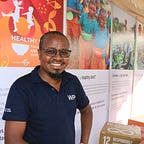Deferred dreams, fading hope for people who return home after conflict
A generation’s aspirations are slipping away in Ethiopia
Sultan Abdi Rashid is 15 years old. He is a grade 5 pupil at Safiya school in Ausharif kebele (ward), Babille woreda (district), East Hararghe zone in Oromia Region.
This year he hasn’t attended school. Not one single day.
“I want to be a teacher. If the school is reconstructed, and the teachers return, I will go back to learning,” he says.
Sultan’s family was displaced from their village in Ausharif in 2018, at the height of inter-communal conflict in Ethiopia. They have now returned to the remains of what was once their home. Broken houses, burnt fields, empty livestock pens. Sultan stays at home and helps with the chores.
“I don’t want to stay in the farm like my father and mother,” says Sultan. “I am sad that I’m not continuing with studies. I want to finish schooling and get a job.”
When villages were attacked, the local infrastructure too was destroyed.
Sultan’s school roof was ripped off. And so was the roof of his family’s house; they have now moved back and covered the top with tarpaulin donated by aid agencies.
Beacon of hope
Sultan is the eldest of four. He is also the hope that his mother Tirik Hassan Tahir had, and is still keeping alive.
“This conflict happened because we are not educated,” she says. I am slightly taken aback, and ask her to explain. “We need to educate our children so that they can think differently — if we were educated, we would not engage in such senseless fighting.”
Tirik almost got swindled off a piece of land.
“If my son was educated like the kebele leaders, or if he was a lawyer, he would have helped me a lot,” she says. “In fact, these people [would-be swindlers] would never have attempted to con me.”
Despite her lack of education, I am struck by Tirik’s wisdom which is beyond many educated people.
Wishing for normality
Tirik hopes that life can get back to normal soon, that her son’s school can reopen so that he can resume studies.
“The children have missed almost a year of school,” she says. “It will be difficult for them to catch up.”
It is also immensely difficult for Tirik to return to her old life of not relying on donations. Tirik made a living farming. She grew groundnuts and khat [a stimulant widely popular in the Horn of Africa] primarily for sale, and sorghum and maize for the family’s food. All her crops were destroyed.
But today, she joins 2,500 others, mostly women, in Babille food distribution to collect a month’s ration of relief food from the World Food Programme (WFP), because she doesn’t have any other source. In Ausharif kebele, WFP is feeding more than 5,500 people who have returned to their destroyed homes and farmlands — but are unable to get back on their feet yet.
In East and West Hararghe zones, WFP has been reaching almost 400,000 internally displaced persons (IDPs) and returnees with food rations comprising cereals, pulses and vegetable oil, or a combination of food and cash, every month.
Across the country, WFP has been assisting over 1 million IDPs and returnees in Somali, Oromia, Benishangul-Gumuz and Southern Nations Nationalities and Peoples’ Region. Fortified foods have been provided to more than 111,000 children and pregnant and breastfeeding women, through targeted supplementary feeding.
Gaping needs
Tirik is back to her farm but doesn’t have the tools to till her land or the seeds to plant. She cannot afford the fees charged for mechanized ploughing.
She hasn’t produced any food for the past year due to the disruption caused by the inter-communal conflict.
“Our biggest challenge here is shelter,” says Abduselam Mohammed, head of Disaster Risk Management Office in Babille District. “We are receiving food from WFP on a regular basis and NGOs are helping with basic services, but we need help with new shelters.”
But the food from WFP is dependent on the benevolence of donors. In May, a pipeline break led to a delay of food distributions across the East and West Hararghe zones. Aggrieved IDPs and returnees in some places threatened Disaster Risk Management officers with violence.
Many displaced people went into debt, borrowing food to return if or when WFP resumed distributions.
It is imperative that the returnees quickly start producing their own food again. But they will need a hand in order not to need continued relief.
“It costs 400 Birr per hour to hire a tractor to plough the fields,” Abduselam says. “These families have lost everything. They cannot afford such a cost.”
The cheaper option — which most people often go for — is to rear oxen and plough manually. But all the animals were driven away during the conflict.
Securing a future for the children
Tirik vows that she will take the younger children to school as well — including her one daughter. She will not let cultural practices get in the way. Many parents do not take girls to school, keeping them home to help with chores or marrying them off early; as is the case with 15-year-old Kedra Oli Ahmed, already married, and 14-year-old Kubra Abdi Esa, who is the only girl in her family and so far has never stepped inside a classroom.
Tirik can control this aspect of life with her daughter, but if another round of conflict and displacement occurs, there is no telling whether this dream will ever be achievable.
Click here to learn more about WFP’s work in Ethiopia.
